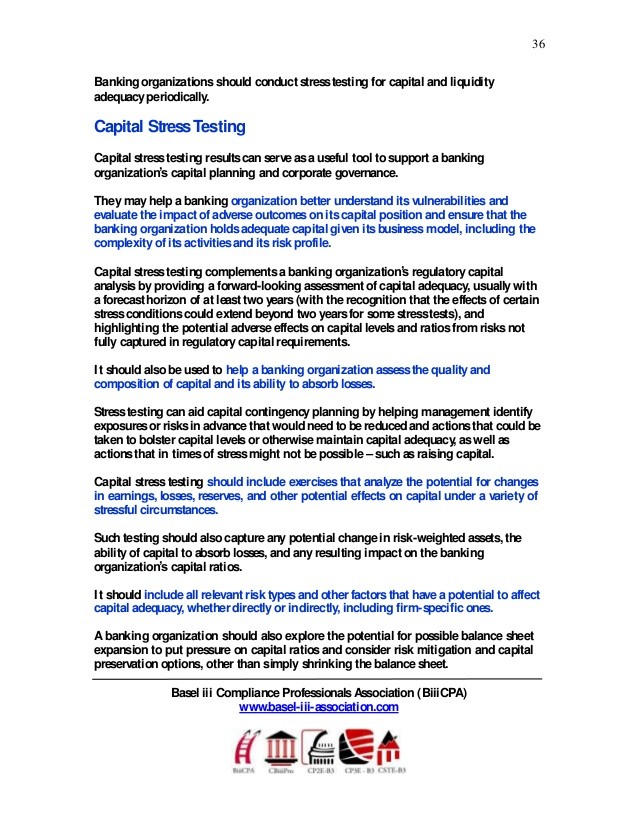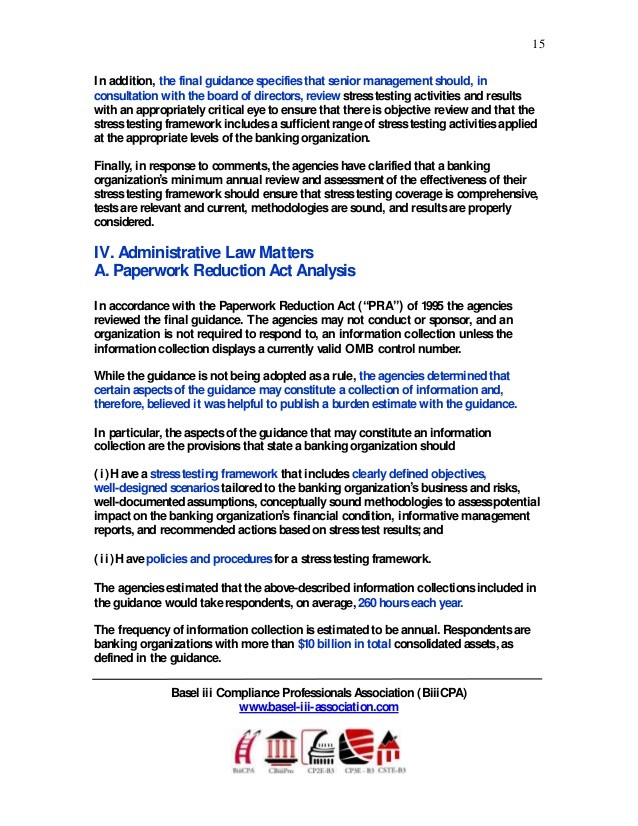Basel III Could Jeopardize Indemnification for Securities Lending Deals
Post on: 16 Март, 2015 No Comment

Basel III Could Jeopardize Indemnification for Securities Lending Deals
Investment funds who earn revenues from securities lending transactions may need to brace themselves to earn a lot less should the Basel III Accord be adopted with some new accounting rules.
A time-honored and comforting practice known as indemnification could end up being scrapped — or a lot more limited — because of the recommendations for the global Basel III accord, says Finadium. The research firm specializing in asset servicing just issued a report on the matter entitled The Future of Indemnification in Securities Lending.
The Basel III Accord is the international regulatory framework designed to improve supervision of the banking sector. The accord calls for banks to post more capital against financial shocks and the amount of capital will depend on the amount of debt they have. Basel III could end up costing custodian banks a lot more to offer indemnification — a type of insurance policy.
In securities lending, custodian banks and other securities lending agents agree to make the plan investment fund whole in the event a borrower of securities reneges on its obligation to return securities to the lender. Custodian banks and lending agents aren’t exactly being heroic doing in offering indemnification; this insurance has rarely been used, says Josh Galper, managing principal at Finadium.
Lending agents scrutinize the creditworthiness of borrowers pretty closely to ensure they will meet their requirements. And as a second line of defense, securities lending deals are collateralized. In fact, the value of collateral posted is as a rule of thumb at least 102 percent of the value of the securities being lent. Therefore, should the borrower not return the securities, the custodian bank or third party agent can use the collateral to repay the investor. It doesn’t have to use its own capital.
Securities lending transactions have so far fallen under the realm of what is called shadow banking. The full value of indemnification does not appear on the balance sheets of custodian banks as liabilities. But Basel III Accord could change all of that.
Custodian banks might end up needing to include the entire amount of the loan on its balance sheet and doing so would increase the bank’s leverage ratio, says Galper. Increasing the leverage ratio could ultimately require the bank to post more capital.
So far, regulators haven’t come up with specifics on how indemnification would fit into Basel III, but plan sponsors can still prepare for the potential change. This is a good time for beneficial owners to evaluate how much the indemnification is worth, says Galper.

Securities lending agents may decide to no longer offer any indemnification; ask plan sponsors to pay for it or swallow the new cost. If indemnification becomes unavailable or requires a separate charge, investment funds have two choices: either not engage in securities lending or negotiate with their agent on how they will split fees from securities lending transactions. Agent lenders split the fees from securities lending programs with underlying plan sponsors. Galper declines to specify any fee structure but presumably agent lenders will want a higher cut if they decide to provide any indemnification.
Just how much plan sponsors must give up will likely depend on how regulators decide indemnification should be accounted for under Basel III. If the full amount of the loan must appear on the balance sheet, it will have a greater impact on the bank providing securities lending services. Regulators could also decide to be a bit more lenient and ask banks to only book the value at risk for the securities loan — a value which would be far less than the full amount because of the collateral posted. As a result, the transaction would not impact the leverage ratio as much and the banks could take a lower capital charge.
Last Thursday the U.S. Fed agreed to follow Basel III, but its release did not detail the full accounting rules that will affect indemnification. Several operations executives at custodian banks told www.iss-mag.com they are worried about the lack of certainty on the accounting rules and how it would their securities lending operations. We are educating our plan sponsor customers who are concerned about the potential changes, but no decisions have been made, says the operations executive.
Written by Chris Kentouris, Editor-in-chief (Chris can be contacted through Chris.Kentouris@hotmail.com )














